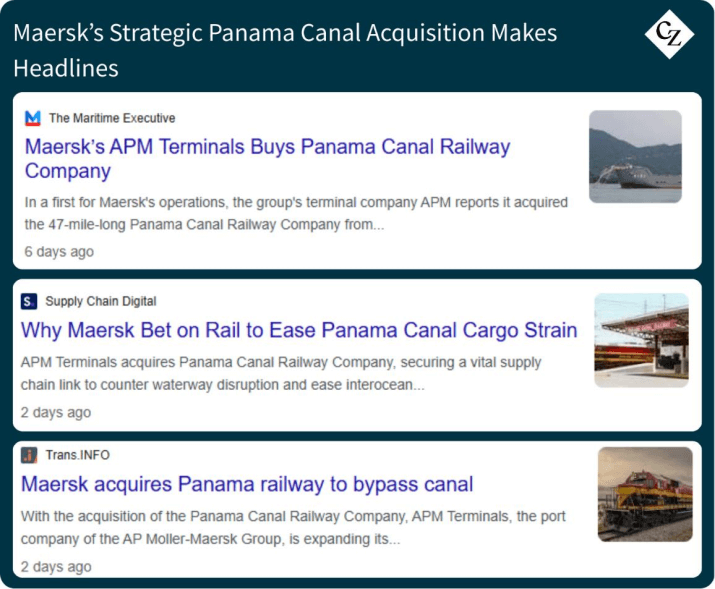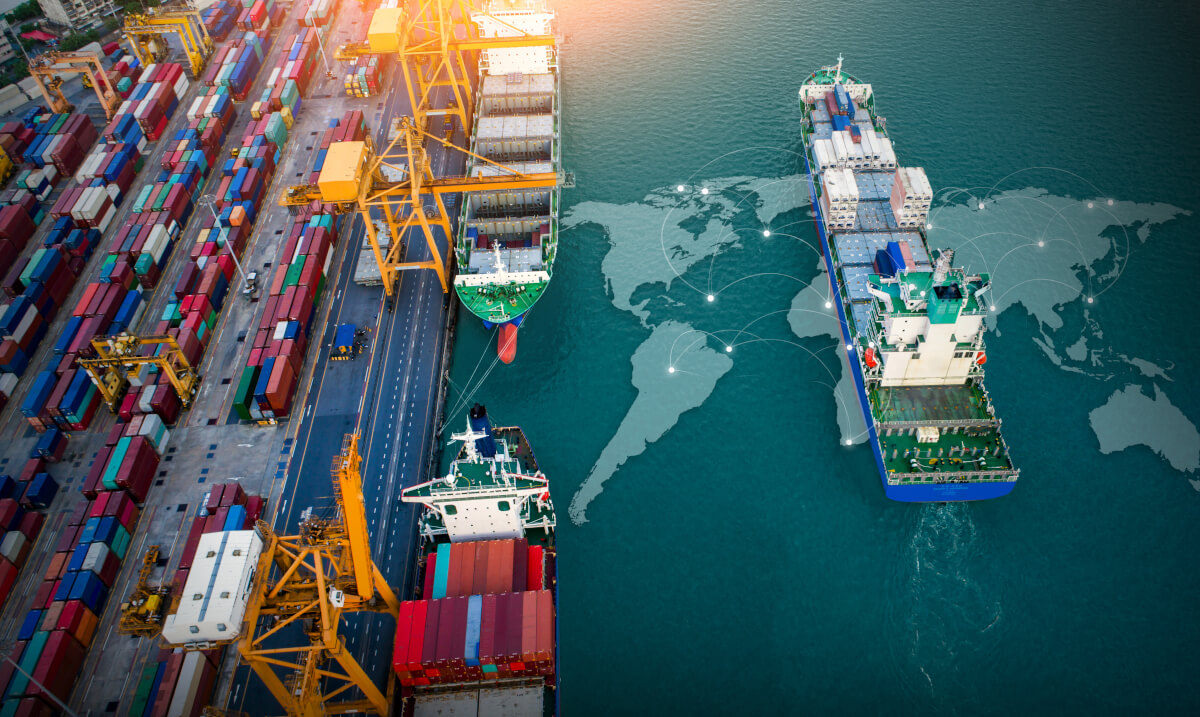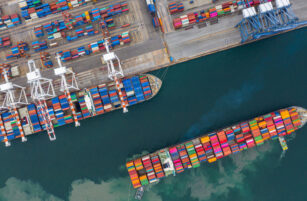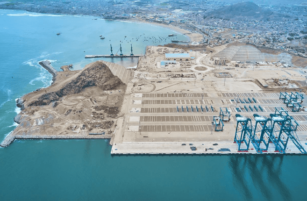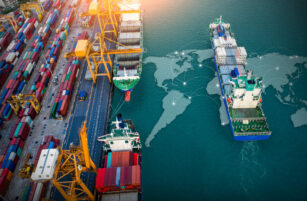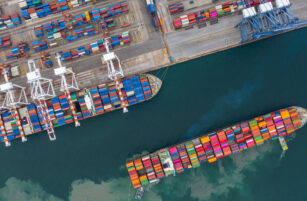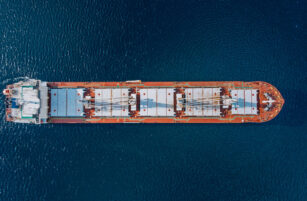Insight Focus
APM Terminals operates 60 ports across 33 countries. The company reported growth in container volumes in 2024, achieving a record revenue of USD 4.5 billion. APM Terminals is expanding with new projects in Vietnam and Croatia, while strengthening its position in the Gemini Cooperation alliance.
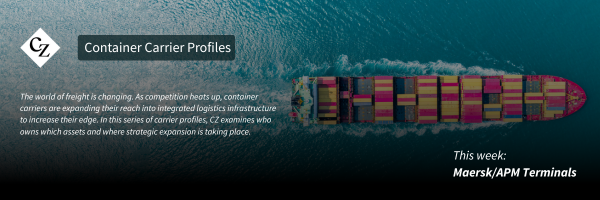
APM Terminals, a global port and terminal operator, is a wholly owned subsidiary of Danish shipping conglomerate A.P. Moller–Maersk. Competing with the world’s largest terminal operators, the company maintains an extensive international presence, holding stakes in major container terminals across the globe.
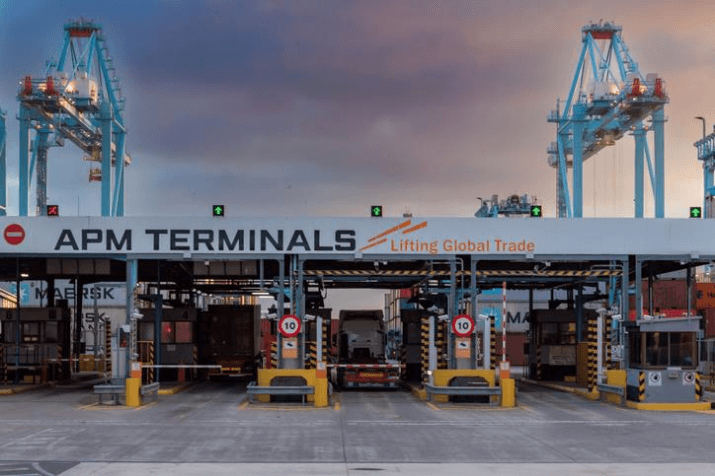
Operational Profile
APM Terminals operates a portfolio of 60 active ports and terminals—including both hub and gateway facilities—across 33 countries, with additional port projects currently underway.
APM Terminals reported total regional container volumes of 13.1 million shipments, reflecting a 7.3% year-on-year growth, and recorded over 27,150 vessel calls at its terminals.
In a regional breakdown, North America led with 3.61 million movements, closely followed by Asia with 3.57 million. Europe and Latin America registered 2.78 and 2.39 million moves respectively. Africa recorded the lowest volume at 721,000 shipments and was the only region to see a year-on-year decline, down 9.5%.
The strongest growth was seen in North America, which surged by 19.8%, followed by Asia with 7.3%. Europe and Latin America saw modest growth of 2.4% and 2.1%, respectively.
In North America, key growth drivers included Pier 400 in Los Angeles and Port Elizabeth in New Jersey. In Latin America, growth at Pecém, Brazil and Buenaventura, Colombia was partially offset by weaker performance in Buenos Aires, Argentina. In Asia, rising volumes in Mumbai, India helped mitigate disruptions caused by the Red Sea crisis, which affected terminals in Aqaba, Jordan and Pipavav, India.
Moreover, in Europe, moderate growth was supported by operations in Barcelona, Spain and Vado, Italy, while the decline in Africa was attributed to the divestment of two terminals in Mauritania and reduced volumes in Onne, Nigeria and San-Pedro, Ivory Coast.
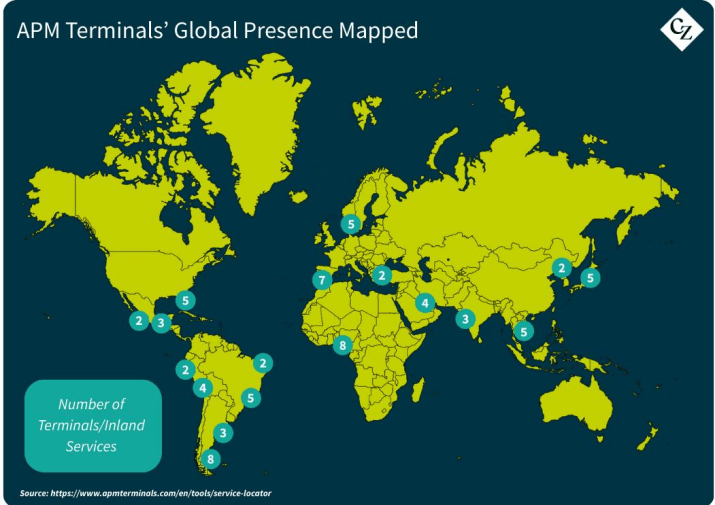
Management Team
APM Terminals is headquartered in The Hague, Netherlands, and is led by:
- Keith Svendsen, Chief Executive Officer (CEO)
- Olaf Gelhausen, Chief Operating Officer (COO)
- Peter Wikström, Chief Financial Officer (CFO)
- Birna Ósk Einarsdóttir, Chief Commercial Officer (CCO)
The company has reported that approximately 33,000 employees work across its global network.
Financial Performance Highlights
2024 marked a record-breaking year for APM Terminals, which reported USD 4.5 billion in revenue, marking a 16% increase over the previous year. The company’s EBITDA rose to USD 1.6 billion, up from USD 1.3 billion in 2023, while EBIT increased by USD 350 million, reaching USD 1.3 billion.
Both EBITDA and EBIT reached all-time highs, driven by robust top-line growth fuelled by strong volume performance and a notable increase in revenue per move. Key contributing factors included tariff adjustments designed to offset inflation, as well as congestion-related storage revenues in the Americas.
These elements collectively resulted in a significant expansion in operating margins, reinforcing the company’s financial strength and operational resilience.
Role in the New Container Alliance Era
APM Terminals is poised to play a pivotal role in the new Gemini Cooperation, the container shipping alliance between Maersk Line and Hapag-Lloyd, which launched operations in February 2025. The alliance is structured around a “hub-and-spoke model”, featuring centralized key “hub” ports connected to regional smaller “spoke” ports.
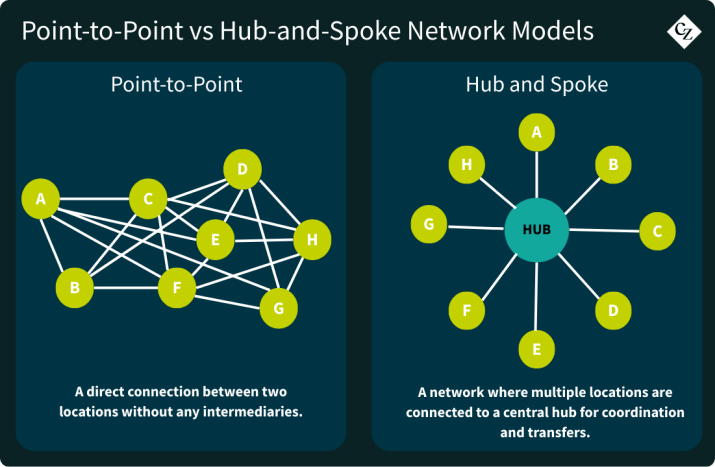
Out of the 12 major hubs that Gemini Cooperation will use as the core of its network, eight are operated by Maersk-owned APM Terminals. These include:
- APM Terminals Maasvlakte II in Rotterdam, The Netherlands
- North Sea Terminal Bremerhaven, Germany
- APM Terminals Algeciras, Spain
- APM Terminals Tangier, Morocco
- Medport Tangier, Morocco
- Suez Canal Container Terminal in Port Said, Egypt
- Port of Salalah, Oman
- Port of Tanjung Pelepas, Malaysia
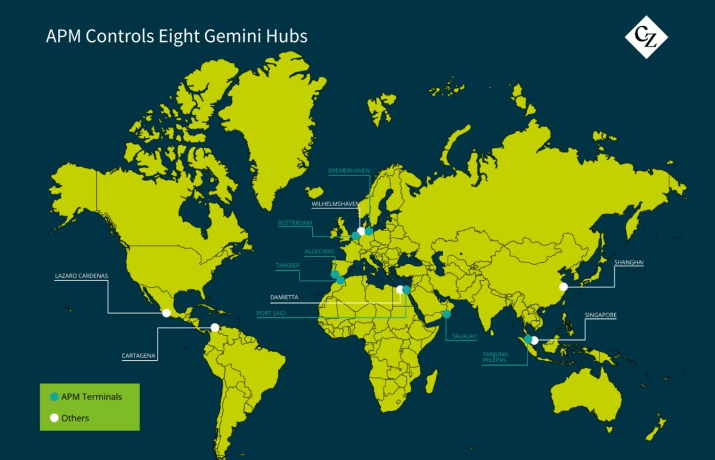
Expansion and Growth Plans
Despite an already extensive global footprint, APM Terminals continues to expand through new development projects and strategic investments aiming to enhance its presence in global markets.
In April 2025, the company, along with Hateco Group, inaugurated a new box terminal in Vietnam. The new Hateco Haiphong International Container Terminal (HHIT) features two new deep-water berths at Lach Huyen Port in Haiphong City. These berths are capable of accommodating vessels with capacities of up to 18,000 TEUs.
Additionally, two major projects classified as “Terminals in Development” by Maersk include:
- Rijeka Gateway, Croatia – APM Terminals holds a 51% majority stake in the terminal, which is being developed in two phases. The first phase is scheduled for completion in the second half of 2025. Once fully completed, the Croatian terminal is expected to feature a 680-metre berth and a capacity of over 1 million TEUs, capable of handling ships up to 24,000 TEUs.
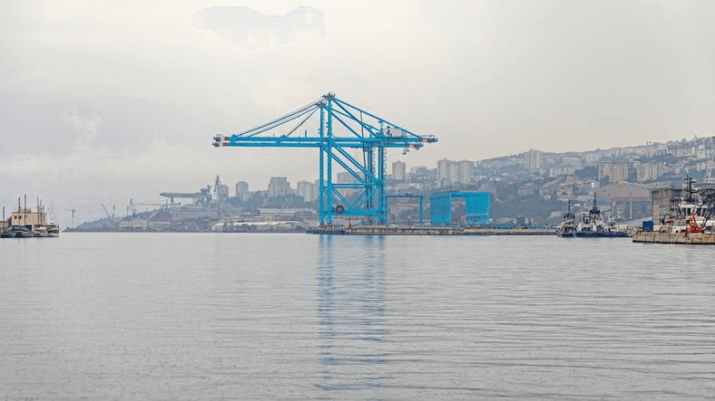
Rijeka Port – Croatia
- Suape Terminal, Brazil – In November 2024, APM Terminals announced that construction began on Latin America’s first fully electrified container terminal at the Governador Eraldo Gueiros Industrial Port Complex (Suape) in Pernambuco State.
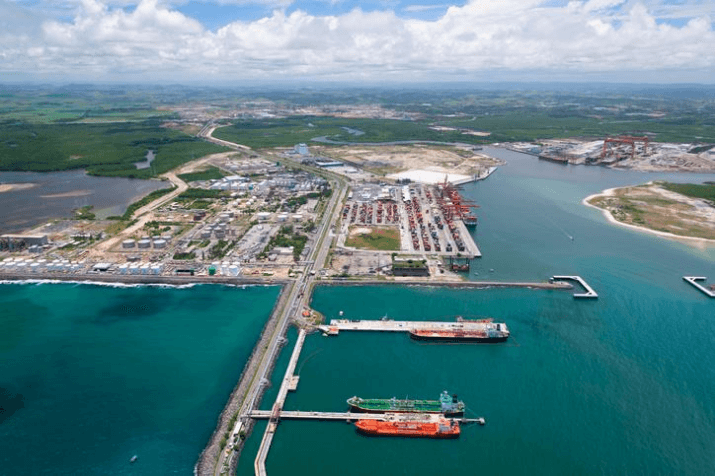
Suape Port – Pernambuco, Brazil
In parallel with these development efforts, APM Terminals is actively renewing concession agreements for key assets, expanding existing facilities, and upgrading port equipment and infrastructure at its terminals worldwide. Moreover, the company is pursuing additional strategic initiatives—such as the recent acquisition of the Panama Canal Railway Company (PCRC)—to further strengthen its market position and enhance end-to-end logistics capabilities.
